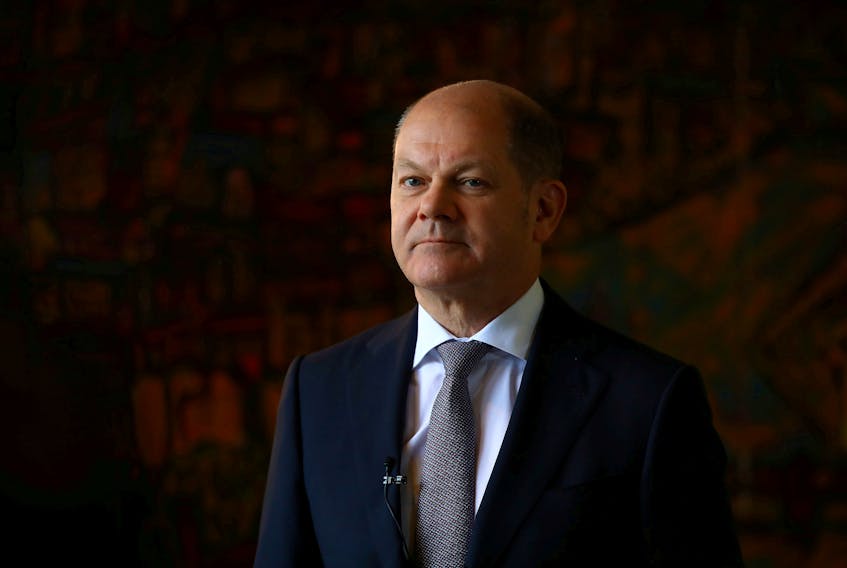BERLIN (Reuters) - Finance Minister Olaf Scholz ruled out taking on new debt to stimulate Germany's slowing economy and blamed anemic growth this year on external factors like unresolved trade disputes and the risk of Britain leaving the European Union without a deal.
In an interview with the BBC aired on Friday, the Social Democrat finance minister also dismissed fears that Europe's largest economy could plunge into a recession after the government halved its 2019 growth forecast to 0.5 percent.
Chancellor Angela Merkel's right-left coalition government is facing calls from EU partners and the International Monetary Fund to boost investment, while a conservative lawmaker has demanded a stimulus package to jump-start the economy.
"We just have softer growth, which is far away from a recession," said Scholz. "And if you are really a globalized economy, if you are a big exporter and importer all the developments in the world economy will have an impact on the development of your country. And we know that there is a slowing of the world economy. And we know where this comes from. It is mostly political reasons."
He added that trade disputes between the United States and both China and the EU, as well as Brexit uncertainties, were the main causes of the slowdown in Germany and not structural problems like weak investment.
Scholz's decision to take on no new debt has drawn criticism from both Merkel's conservatives and his center-left Social Democrats (SPD) as well as from business leaders who want lower corporate taxes.
"I very much agree with all those in Germany saying that we should not have extra debt," said Scholz.
"It is a very good policy that we say that we have enough debt in Germany and that there should not be an increase and that we will stick to the rule of not further increasing the public debt."
Scholz said approved tax relief for families to the tune of 10 billion euros ($11 billion) a year, higher spending on pensions and social welfare, and investments in digitalization, infrastructure and research and development should keep the economy humming.
Germany, whose economy has grown in each of the last nine years, has had a "debt brake" law in place since 2011 that forces the federal and state governments to virtually eliminate their structural budget deficits over five to 10 years.
(Reporting by Joseph Nasr; Editing by Douglas Busvine and Mark Potter)









